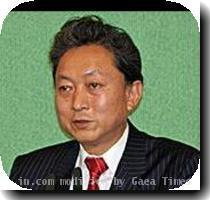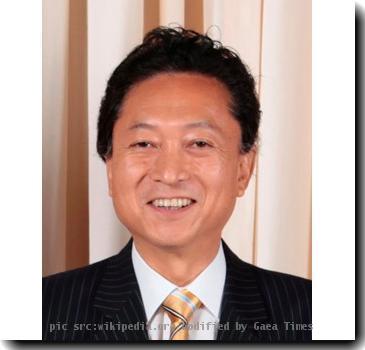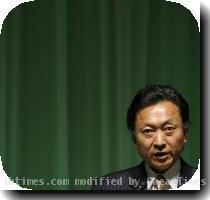Japan gives Toyota chief passing marks over testimony, but sees crisis far from over
By Kelly Olsen, APWednesday, February 24, 2010
Toyota chief’s testimony closely watched in Japan
TOKYO — Japan appeared relieved Thursday that much-anticipated testimony by Toyota’s chief executive before U.S. lawmakers was finally over, though analysts said the company’s recall woes are no closer to being solved.
Toyota Motor Corp. President Akio Toyoda’s appearance before the House Oversight and Government Reform Committee was closely watched in Japan, where the company his grandfather founded is a national icon. It was the top item on local morning news programs and in evening newspapers. At least one channel broadcast part of his testimony live, where it took place Wednesday in Washington.
News shows, including those on national broadcaster NHK, showed clips of Toyoda reading introductory remarks in English and answering questions from lawmakers, generally characterized as “severe” in nature. One channel suggested what Toyoda faced was less harsh than that seen in a separate hearing Tuesday held by another committee which he did not attend.
A colorful Fuji TV morning show, which mixes political, entertainment and social news, characterized Toyoda, the grandson of the automaker’s founder, as the “prince under attack.”
News shows later showed a tearful Toyoda appearing after the hearings with U.S. Toyota dealers and employees.
“At the hearing, I was not alone,” Toyoda said. “You and your colleagues across America, around the world, were there with me,” he said, his voice cracking. One announcer theorized that Toyoda may have choked up out of a sense of relief following the tough questioning.
Analysts gave Toyoda passing marks for his performance amid blistering questioning from lawmakers.
Koji Endo, managing director at Advanced Research Japan in Tokyo, acknowledged that the hearing was “a little a bit harsh” and noted that some of the lawmakers appeared frustrated by Toyoda’s use of an interpreter and answers that were not as clear as they would have liked.
“But it’s not getting too political, as we thought might happen,” he said. “Toyoda-san doesn’t seem awkward, he seems to be sincerely giving his responses. My impression is that it’s not that bad.”
Ryoichi Shinozaki, a crisis management expert at Kyodo Public Relations Co. in Tokyo, said, that by Japanese standards, Toyoda’s performance was acceptable and was an improvement on the one given the day before by James Lentz, president of Toyota Motor Sales USA Inc.
“By Japanese standards, he was doing his best,” Shinozaki said of Toyoda. “He answered the questions and he appeared comfortable.”
Shinozaki, however, said that the company’s crisis was deepening because of other factors such as possible defects in the electronic throttle, new investigations by federal authorities and possibilities there may be cover-ups.
“The problems aren’t going away,” he said after watching the hearing on TV. “The hearing is over, but the crisis is only getting more serious.”
Japanese Prime Minister Yukio Hatoyama weighed in, urging Toyota to focus on safety.
The end of the hearing “does not mean everything is over,” Hatoyama told reporters.
Ryoichi Saito, an auto analyst at Mizuho Investors Securities, said that Toyoda’s appearance failed to provide any major breakthrough.
“Although Toyoda sincerely testified, it helped little to ease worries because the root cause of unintended acceleration remained unanswered.”
Advanced Research Japan’s Endo said the ultimate fallout for Toyota in terms of how much its sales drop due to the crisis remains unclear.
“Hopefully there will be no more major recalls and the company can fix the problems as quickly as possible,” he said. “It will take the next couple months to see what (the) impact will be.”
Toyota’s share price rose in early trading, but was unable to maintain momentum and closed 0.2 percent lower at 3,270 yen ($36.55) for a third straight daily decline.
The tough questioning that Toyoda faced was expected in Japan. Media reports in recent days have described the workings of U.S. congressional hearings, where lawmakers are known for grilling attendees.
Toyoda, appearing later on the popular “Larry King Live” talk show, was asked if he thought he was treated fairly at the hearing. He replied through an interpreter that as it was his first time at such a venue, “I’m not sure if it was fair or not.” Asked by King if any of the criticism directed at Toyota amounted to “Japan bashing,” Toyoda replied it did not.
Kazuhiro Otsuka, 32-year-old business man on his way to work during morning rush hour, seemed pleased with Toyoda’s performance, some of which he saw on a morning news show.
“It is a good thing that he is explaining safety issues to the American public,” Otsuka said. “Toyota is not just a Japanese company, it is a global company. As the top leader, Toyoda should explain safety matters because what is at stake is human lives.”
Associated Press writers Malcolm Foster, Yuri Kageyama, Shino Yuasa and Mari Yamaguchi contributed to this report.
Tags: Arts And Entertainment, Asia, East Asia, Geography, Japan, North America, Television Programs, Tokyo, Toyoda, Tv News, United States, Yukio Hatoyama


